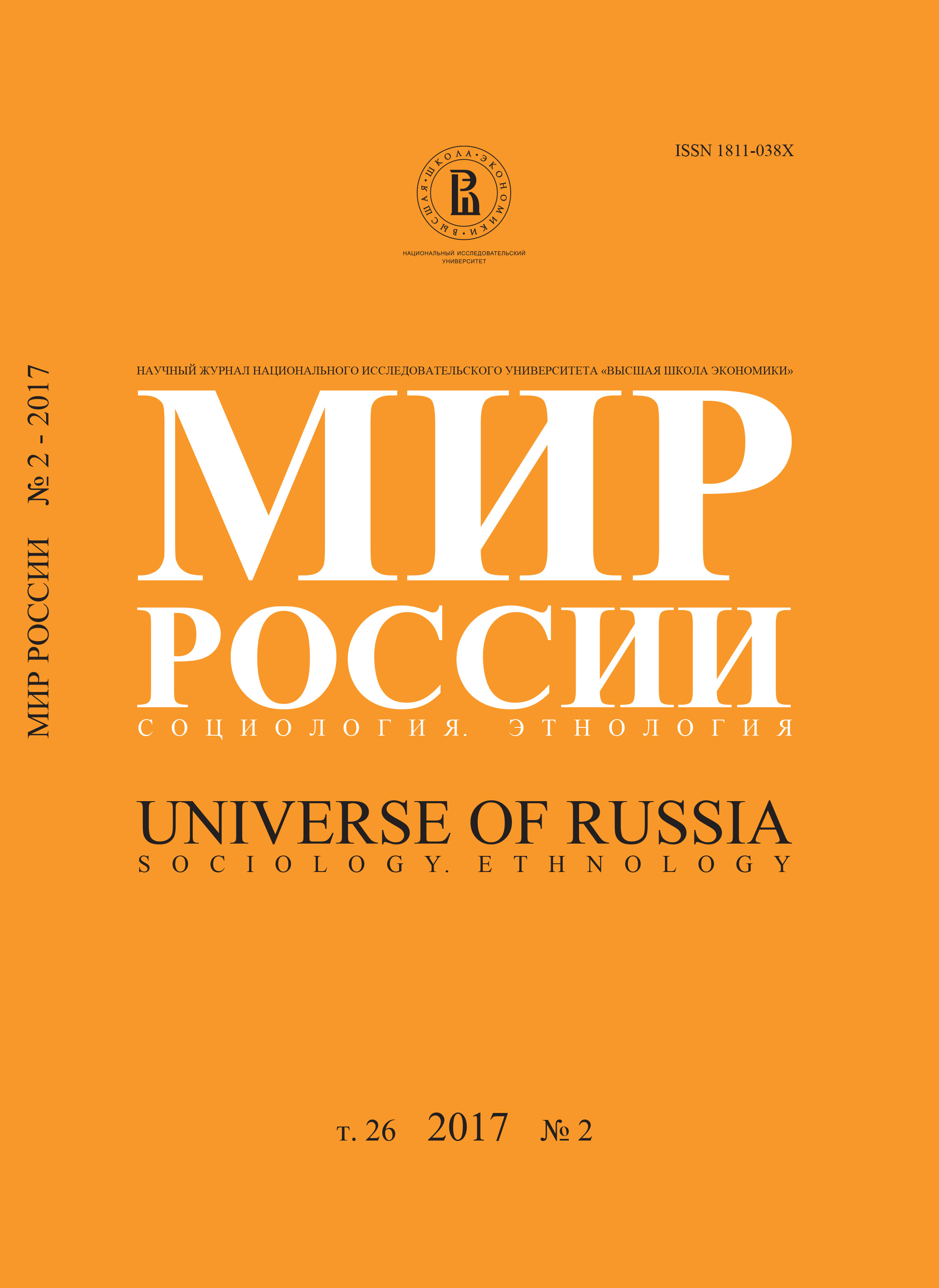The Shadow Price of Social Change and Its Evaluation
Abstract
Vladimir Karacharovskiy – Candidate of Science in Economics, Assistant Professor, Deputy Head of the Laboratory for the Comparative Analysis of Post-Socialist Development, National Research University Higher School of Economics. Address: 20 Myasnitskaya St., Moscow, 101000, Russian Federation. E-mail: vvk@hse.ruOvsey Shkaratan – Doctor of Science in History, Tenured Professor, Head of the Laboratory for the Comparative Analysis of Post-Socialist Development, National Research University Higher School of Economics. Address: 20 Myasnitskaya St., Moscow, 101000, Russian Federation. E-mail: ovsey@hse.ru
This paper analyses the “shadow price” of social changes. For the first time, an attempt was made to determine the approaches to measuring this value with regard to non-market phenomena and processes, and to apply these approaches in an empirical analysis, based on a representative survey in Russia (N = 1,000) using experimental situations.Specifically, it quantitatively evaluates (1) the degree of divergence between the real and the ideal structure of the time budget of several important domains of social life; (2) the ratio of social ills to social benefits; (3) individual public welfare functions, (4) the social cost, legitimated by citizens, of reproducing two fundamental public goods: “the capacity to maintain ‘superpower’ status” and “the well-being of the future generations”. The authors introduce and operationalize the novel concept of the socially sub-optimal product of labour, i.e. the product resulting from alienated (or unwilling) labour, and conversely, the product which could potentially result from using unutilized willing labour. In doing so we support the idea of distinguishing productive and unproductive forms within both the notion of labour and the notion of leisure. Aggregated estimates of these values show the share of GDP which could be optimized due to a redistribution of the time budget of the population between the main areas of life, according to ideal social preferences.The balance of social benefits and social ills resulting from the life experiences and activities of individuals are empirically evaluated. We consider this balance, which is the sum of impacts of the social environment on the individual, as a suitable model for explaining how individuals make decisions about whether or not to participate in public life. “Individual public welfare functions” are assessed empirically, demonstrating that individual utility depends on personal and collective consumption. Empirical testing covered a wide range of nation-building areas with public investment in relevant types of merit and public goods.Then the authors propose and test on empirical data an opportunity cost approach to evaluating socially legitimate amounts of funding for the fundamental social benefits “superpower” or “additional power” of the nation.The cost of the public good “well-being of the future generations” is calculated for the Russian sample.Finally, the estimates of the discount rates of human lives and “healthy and prosperous years of life” were obtained for Russia for the first time. The findings of the study are relevant for the efficient management of complex socio-economic systems. The authors strongly believe that revealing the structure of existing social preferences and estimating their impact on various areas of social life will help improve policy making by explicitly taking into account the specifics of the real social contract between the state and society.






